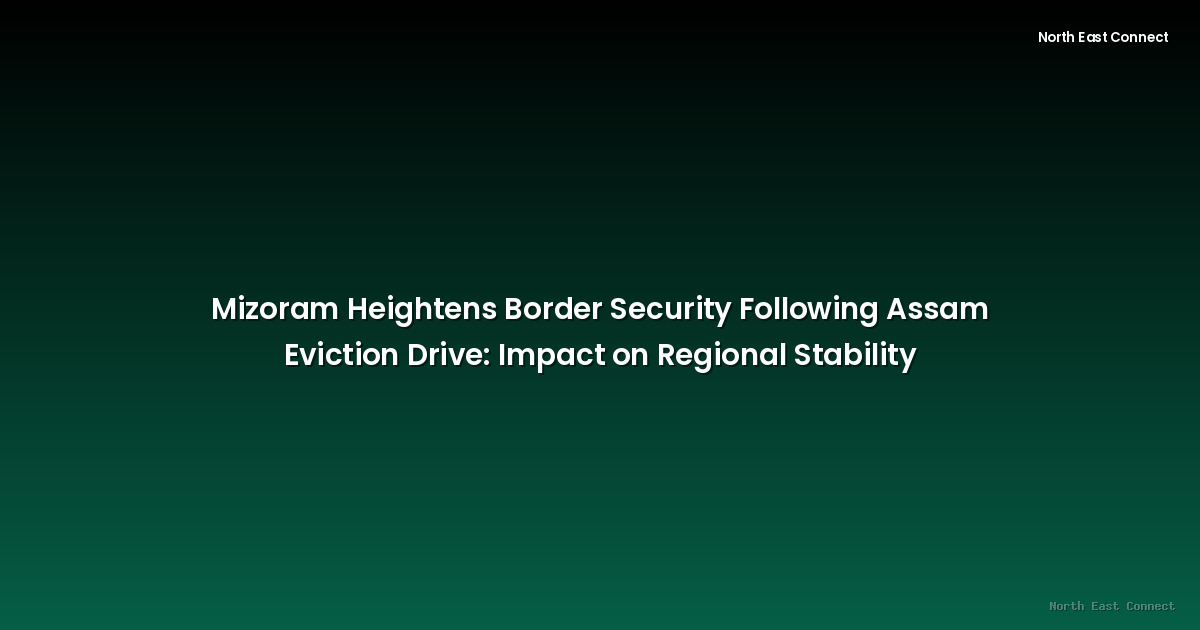2025-08-29 · News
Mizoram has significantly increased its border security presence following a large-scale eviction drive conducted by the Assam government. The heightened security measures, implemented along the shared border between the two northeastern Indian states, aim to maintain peace and prevent any potential escalation of tensions. While official statements have not explicitly linked the two events, the timing suggests a direct correlation.
The Assam eviction drive, targeting alleged encroachers on government land, has resulted in displacement and unrest. This has, in turn, prompted Mizoram to bolster its border security forces. The deployment includes increased patrolling by state police and paramilitary forces to monitor movements across the border and prevent any unauthorized crossings or potential conflict.
The precise nature of the security enhancements remains undisclosed, but reports suggest an increase in personnel and the use of advanced surveillance technology. The move underscores the delicate relationship between Mizoram and Assam, which has historically experienced periods of tension, primarily related to disputed territorial boundaries and resource management. Past disagreements have occasionally resulted in minor skirmishes and border disputes, although large-scale conflicts have been avoided.
The current situation raises concerns about the potential for further escalation. The displacement of individuals from Assam due to the eviction drive could lead to increased pressure on border areas and potentially exacerbate existing tensions. While both states have emphasized their commitment to peaceful resolution, the heightened security measures suggest a cautious approach aimed at preventing any unforeseen incidents.
The response from Mizoram highlights the complex challenges involved in managing inter-state relations in Northeast India, a region characterized by diverse ethnic groups, historical grievances, and often overlapping territorial claims. The effectiveness of the security measures will depend on several factors, including the ability of both states to maintain open communication channels, address underlying grievances, and explore cooperative solutions to manage disputed areas.
The long-term implications of the situation remain uncertain. A successful de-escalation will require a concerted effort from both governments to foster dialogue and find common ground. Failure to do so could potentially lead to a prolonged period of heightened tension along the border, with implications for regional stability and the well-being of the communities living in the border region. Independent observers and civil society groups are urging restraint from both sides and emphasizing the importance of peaceful and constructive engagement to resolve the underlying issues. Further developments will be closely monitored.
The incident highlights the need for robust inter-state mechanisms to address boundary disputes and manage potential conflicts in the sensitive Northeast region. Improved coordination and communication between Mizoram and Assam are crucial for preventing future escalations and ensuring peace and stability in the region. The effectiveness of the current security measures will be closely assessed in the coming days and weeks.







